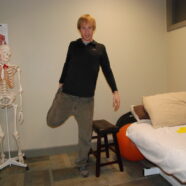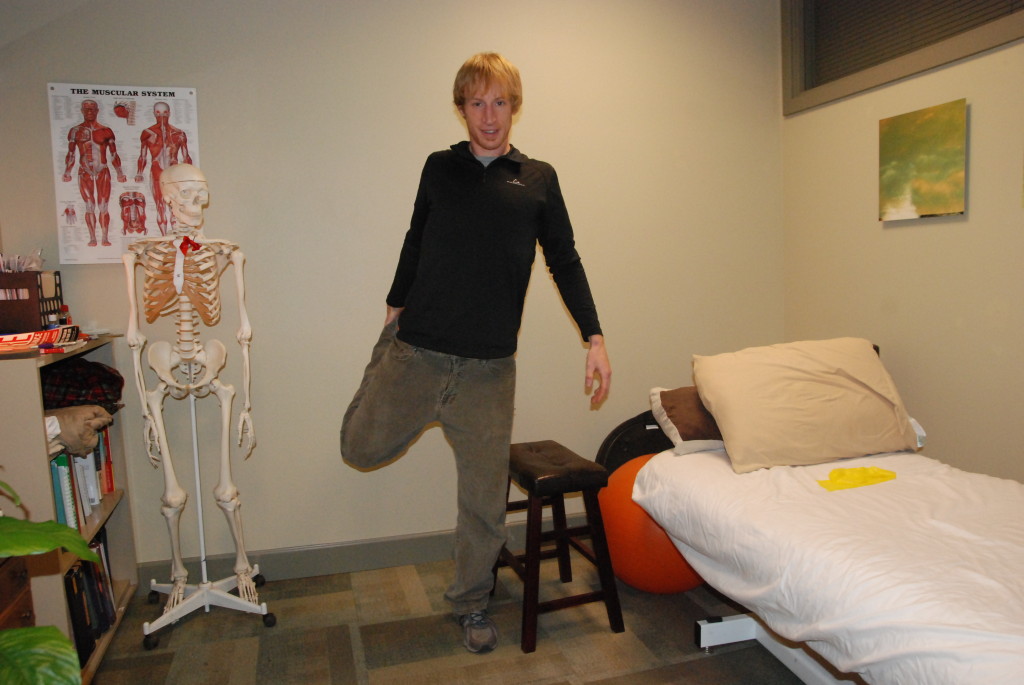
 Why stretching may actually be contributing to your pain.
Why stretching may actually be contributing to your pain.
As a Physical Therapist, I have “prescribed” stretching for years. As fundamentally simple as stretching is, there is still very little agreement on it among “experts.” We can’t seem to agree whether it should be down before, during, or after working out. Should we hold it 3 sec, 30 sec, 60 sec or 90 sec? Should we use a belt or rope and apply over-pressure? Should we actively contract the opposing muscle group to accentuate the stretch? While so many of the details are still being ironed out, I’d like to share a few points no matter which side of the stretching paradigm you find yourself.
1. The more muscle mass you have the stiffer the muscle becomes. Think “quads of steel.”
2. If you “stretch” 3 muscles with varying stiffnesses the least stiff muscle will stretch first and more readily than the others.
3. Muscles control joint motion
4. Unless you’re focused on proper form, you will likely just be stretching out your overstretched areas. Think path of least resistance.
5. Most pains in the body are a result of hyper-mobilities. Not from being too stiff. Hmmmmm……..
6. You get what you train. For example- if you use your quads more than your hammies while biking, your quads will be stiffer, potentially creating an imbalance at the knee, hip, and/or back.
I have a few examples (easy ones to pick on)-
The “runners” stretch. We’ve all seen somebody throw their leg up on a park bench and bend forward to touch their toes going for the ‘ol hammy stretch (which are always stiff). What’s their back doing? Probably pretty rounded. If you keep your back straight how far do you stretch now? A lot less I’m assuming…… That’s because when you forward bend your hamstrings arrest the motion, then you back takes up the slack- and voila- you stretch…….your back. No wonder that hammy never loosens up……and your back hurts.
The “quad” stretch. Similar scenario- you grab a foot with your knee bent and pull it behind you to get that quad stretched out. Feels so good……wait a second……what are you stretching? Probably some quad, but did your back arch? Well then, maybe you’re stretching your abs a bit too. And is your knee pointing straight at the ground or off to the side? Probably off to the side- because that pesky TFL (tensor fascia latae) that tightens your IT band is soooo tight that the simple thought of your knee pointing to the ground is a foreign concept. If you tighten your abs, and keep your knee pointing at the ground, you will likely have less appreciable motion. Now you’re onto something……
Herein lies the real problem- we often times blow through the appropriate level of stretching (if we were to properly stabilize the hypermobile segments) and instead overstretch our overstretched areas some more. This is a problem!! Or THE problem.
By evaluating the body as an interconnected series of muscles and identifying where your hypermobilities occur, we can limit the amount of stress that are transferred through these areas. This is in a nutshell is the basis for how I evaluate the body during the initial evaluation and subsequent follow-ups. By breaking larger, more complex movements down into their constituents, proper movement is emphasized with the correct stabilization patterns to prevent that improper “path of least resistance” concept.
If you’ve been suffering from aches and pains and want to figure out where exactly it’s coming from and how to fix it, schedule an appointment with me at biapt.schedulista.com. Or contact me at drsethburke@gmail.com.
Regards,
Seth Burke, DPT
Owner


Recent Comments